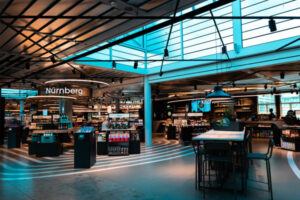By Gunduz Bayer
We are facing an unprecedented situation in recent history, for both Turkey and the world. It makes us feel as if we were part of a science fiction movie, changing and limiting our daily life in a way we have never experienced before.Looking into post-Covid19 developments in China, it is clear that the economy will rebound and business in our centers will start to normalize. The sooner it happens, the less painful the effects will be. Now is the time for landlords and retailers to recognize opportunities and possibilities and use time effectively to prepare for a post-pandemic world.All involved parties, namely lessors, lessees, service providers and public authorities, have to play their part in this “New Age of Collaboration’’.
For sure, the pandemic will have long-lasting negative effects, but it can also be seen as an opportunity to accelerate some changes in our industry, which are inescapable. Covid-19 will leave its mark on consumption patterns and lifestyle. Consumers will likely understand what they are missing and react accordingly after the pandemic. We will have to re-evaluate our perspective on many issues. These effects will be recognized both in the way we are planning future centers and the way we are managing existing centers.
For the first time ever, our shopping-centers have been closed for more than a month. The new situation creates entirely new circumstances and limitations which also produce unnecessary tensions between lessees and lessors. Facing the reality and acting quickly is essential for both parties to overcome the unknown. A general rule to handle this crisis is not existing. The parties have to navigate through this situation in the best way they can while being as flexible as they can. First priority for all parties should be the security of our customers and colleagues working at the front line. It is a partnership where risks and losses have to be shared between the stakeholders. Landlords and tenants should attach importance to “saving the operational business’’ to survive and not to “cash in’’ on this crisis. There is light at the end of the tunnel, but we need strong partners to re-energize our business when the situation gradually stabilizes and returns to normal.
The big shutdown will accelerate the transition from traditional malls that are basically a collection of shops to a new era of mixed-use projects combining retail, food, entertainment, offices, residential, public spaces with Integrated online elements. The lessor & lessee relation reflected in traditional lease models we are currently familiar with will transform into partnership models where risks and benefits will be shared. Commercial models and more transparent rental contracts will have to be reassessed giving all stakeholders more flexibility when it comes to duration and rent conditions. Marketing and managing these kind of hybrid venues will need much more sophisticated input from developers and occupiers than traditional malls. Collaboration and alignment between all stakeholders during planning and managing of such projects will become inevitable.
Developing medium and long-term strategies and calibrating them in real time will make us all ready for the post-pandemic era. We have managed the shock phase in one way or another and we are now in the adaptation phase where we are much more familiar with the challenges and at a position where all of us have to take a more structured and rational approach. In this phase, the landlords have to evaluate all tools to assist their tenants in getting back on their feet shortly after the crisis to be ready for the rebirth phase and a new world. A targeted and selective approach is essential. Tenants have to be differentiated according to their sub-sectors, financial strengths and past performances, and actions should be taken accordingly. Communication and transparency during this process will be even more important than before. There should be willingness to talk to each other about one’s respective difficulties and plan an appropriate concrete recovery course for the future together.
The recovery will be a gradual process. Therefore, all parties have to be patient and evaluate their situation from a long-term perspective. It is certain that there will be some sacrifices to be made during and after the pandemic. Nevertheless, all stakeholders have to be aware that it is important in a partnership to end up sharing the burden in some way. Therefore, the parties should be aware and understand the ongoing obligations of each other. We should not forget that we complement each other and that we have to get through this crisis together and should not try to survive on the cost of the other.






